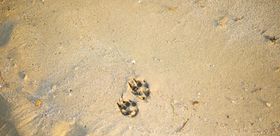Are Bodies Drained Before Cremation?
One form of cremation involves the body being cremated as is, while the other involves the bodily fluids being drained and replaced with embalming solution.
Published July 19, 2022
When it comes to cremating a body, there are primarily two options: direct cremation and cremation that involves a visitation beforehand. If the family chooses direct cremation, the body is prepared by removing all jewelry, pacemakers, and ICDs. Then, the body is cremated as is, with no further preparation. This is sometimes the preferred choice as it is the cheapest way to be cremated.
If the family chooses to have a visitation before cremation, the body is embalmed. This process involves washing, drying, draining, and embalming the body using disinfectant chemicals. The body is then dressed and made presentable for viewing. Once the viewing is over, the body will be cremated as is.
Do They Leave Fluid in Your Body Before Cremation?
In the case of direct cremation, the deceased’s body does not get drained of fluids and is cremated as is. If the body is being embalmed, the bodily fluids are exchanged (drained and replaced) with chemicals. The blood is drained out while, at the same time, embalming solution is injected into the carotid artery through a small tube connected to an embalming machine. However, the embalming solution is still fluid.
In both cases, the body is not completely drained before cremation and gets cremated with fluids.
What Happens to Fluids During Cremation?
The entire body burns during cremation, including the fluids, whether natural or chemical. All bodily fluids evaporate and escape through the cremator’s exhaust.
In fact, the human body is primarily made up of water, carbon, and bone. When the body is cremated, the high temperatures reduce the organic matter to nothing through vaporization and oxidation. The process of cremation causes all the water and chemicals present in the body to evaporate. All that is left after the cremation is the bones and teeth, which are finely ground and called the cremains.
Related Articles

8 Ways to Honor Your Pet’s Life Through Their Ashes
Cameron-Leigh Henning
March 22, 2022

Why Biodegradable Urn for Water Scattering Is a Great Idea
Staff Writer
April 8, 2022

Interesting Facts About Cremation
Staff Writer
April 11, 2022

What’s Included in an Affordable Cremation?
Staff Writer
April 11, 2022

Factors to Know When Visiting a Funeral Home
Staff Writer
April 7, 2022
Related Posts
Cam Henning
